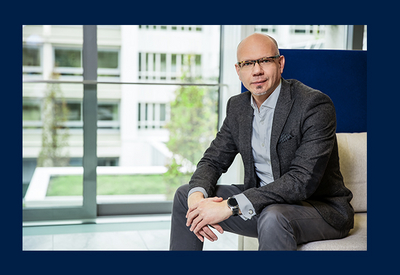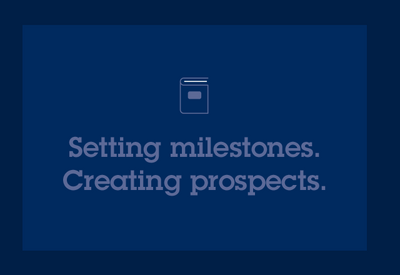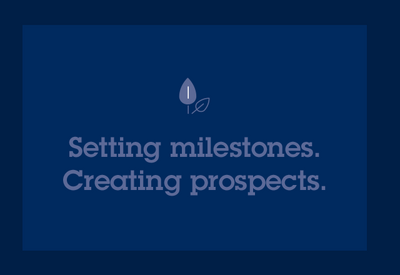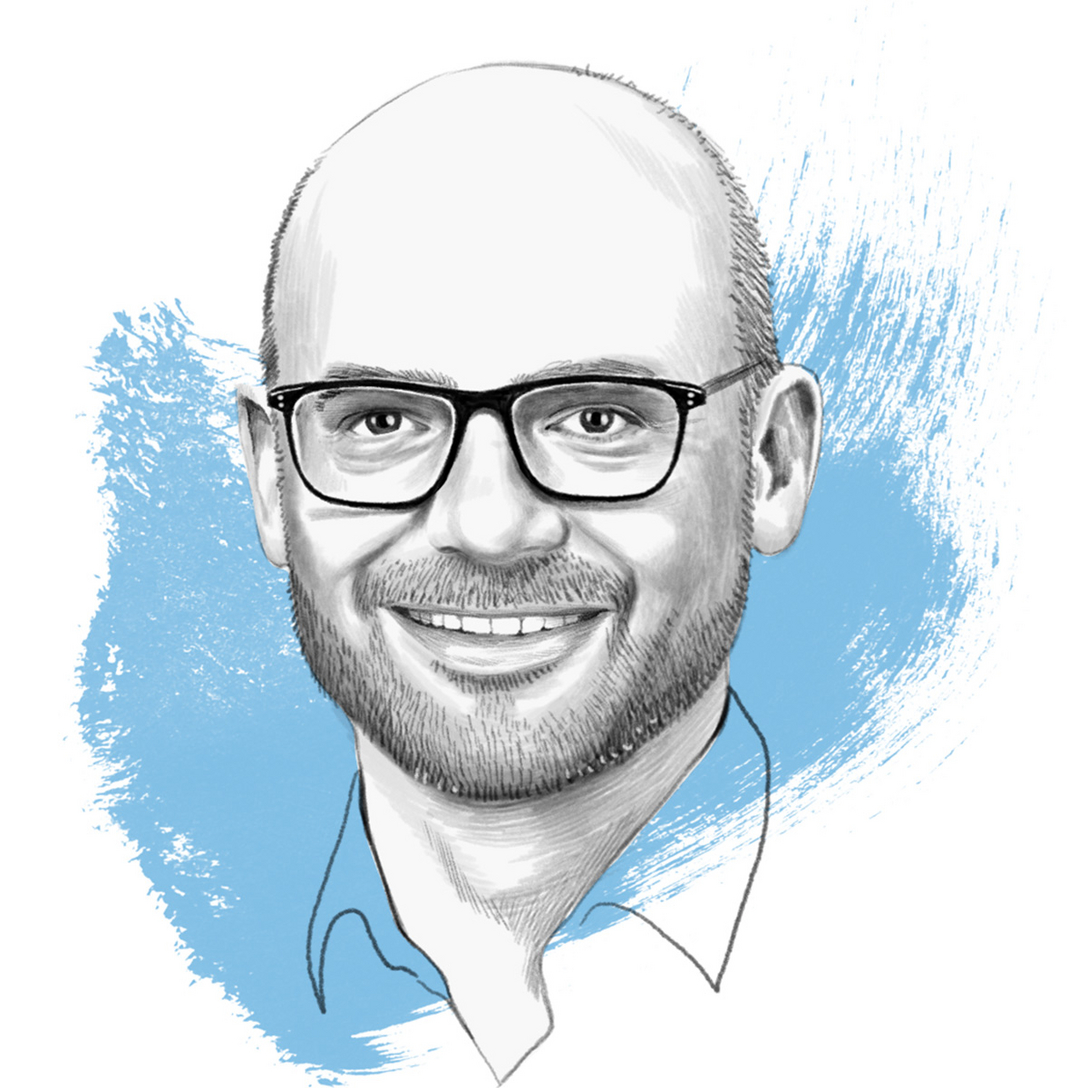YOUR COMPETITIVE ADVANTAGE.
Breaking new ground
Is the property industry open to start-ups? And how does a collaboration between established and new players become a success? In conversation with Philip Rodowski, CEO of the start-up objego, and Henning Zander, Head of Aareal Bank's start-up programme.

What Philip Rodowski and his team aim to do with the start-up objego, founded in 2020, is to make life easier for private landlords – offering them a digital platform on which they can invoice service charges and manage finances, easily and securely. The company's plan is to work closely with its customers to continuously enhance its functional scope. Aareal Bank and the energy service provider, ista, are on board as strategic partners.
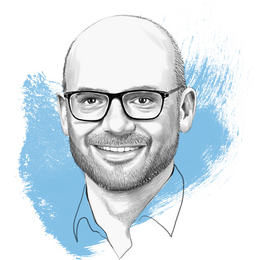
Henning Zander sees himself as a facilitator between the Group and start-ups: He is the driving force behind the Group's in-house start-up programme based round the four pillars of accelerator-programme, collaborations, investments and ventures. He is also the primary contact when it comes to working with PropTechs, FinTechs and start-ups across the Bank’s various business areas.
Mr Rodowski, Mr Zander, how important are start-ups in the housing and property management industries at the moment?
Henning Zander: They are becoming increasingly important. While many start-ups in the property sector, so-called PropTechs, were focusing heavily on brokerage services a few years ago, they are now turning their attention to other parts of the property management value chain. Even though the development of start-ups in the property industry is still quite young compared to other sectors, what I am increasingly experiencing is the convergence between new and established players, founders joining forces and first takeovers.
Philip Rodowski: I agree. There are currently around 500 start-ups in the property sector across the DACH region, and this number is steadily rising. Overall, start-ups are very important for the housing industry because they bring young people with an affinity for digital technology into the sector. The start-up culture is attracting a new group of people to this sector of the economy, and that's a welcome development for sure. We promote innovation and encourage competition. What's more, every start-up creates jobs.
Would you say that this sector is start-up friendly?
Rodowski: That depends on what you mean by friendly: when it comes to the question of whether the established players are open to start-ups, then yes, the property sector is definitely friendly to us. Overall, there are huge opportunities in the market for PropTechs. However, if by friendly you mean that a market can be disrupted easily and quickly, then you have to look carefully at which particular element you want to disrupt. In the past, it was very much about process changes: these can be digitalised more easily and, above all, more quickly – infrastructure issues such as the smart home are certainly much more of a challenge. In summary, the property industry is very receptive to innovation, but due to the nature of the business, it can sometimes be a little slow and sluggish. As a start-up with the ambition to gain a foothold in this industry, this is something you have to be aware of and arm yourself with plenty of staying power.
What are the most important factors for a collaboration between start-ups and established companies to lead to mutual success?
Zander: First, both sides need to be clear about their expectations: What are we looking for from each other? Do we want to work on a product, grow our customer base, or just try something out? Both sides need to find common ground and clearly express where they want to go. It is important then that start-ups – no matter what their focus – and established players meet on an equal footing. After all, we are talking about collaboration and partnership here. It is important to be open and honest with each other and try to understand what makes the other partner tick. In corporate settings, these processes usually take a little longer and involve a lot of people. In start-ups, however, it is often just two or three people pulling the strings – speed and agility are what count here. It is important that we tolerate and accept these cultural differences. And last but not least, each partner should take small steps, always adjust and remain agile.
Rodowski: I absolutely agree – when collaborating, it is always important to keep in mind which world the partner is coming from. It is easy to adjust to differences in speed if you have a clear picture in mind: what do I want to learn from the other partner? How can we combine the best of both worlds?
What role do cross-sector partnerships play in the development of innovation?
Zander: I think it is extremely important to look beyond one's own industry, albeit with a sense of proportion and very specifically. You can learn from other industries, for example, the way in which they tackle project methodology, how partnership models work for them, how they handle technical and conceptual issues, etc. I don't think it's a good idea to look at the same sectors over and over again. What is more important for me is that we allow ourselves to be guided by this fundamental question: who else is experiencing similar issues to us and how do they deal with them?
Rodowski: At objego, we don't think in terms of sectors, but rather from our customers' point of view – in our case, private landlords. When they think about their property, they don't think in terms of sectors. Rather, they want to be able to administer and manage as much as possible from under one roof – starting with the initial financing right through to the conversion of the heating system. objego's goal is to position itself as a platform for every stage in a property's life cycle.
How will the role of start-ups in the property industry evolve – and what role will corporates play in this?
Rodowski: In the short to medium term, the number of start-ups in the property industry will increase, at which point we will see some consolidation: start-ups that merge or corporates that buy start-ups and use them to acquire innovation and talent. But the division of roles will not change – start-ups will continue to act as innovators, while corporates will provide scalable customer and market access. The life cycle of a property is long. In this business, start-ups therefore benefit greatly from the reputation of an established corporate partner.
Zander: Start-ups will remain the driving factor and innovator in the property industry. For corporates, it is important that they at least keep an eye on the market and that they make a move at just the right time, when a start-up idea or concept reaches a certain level of maturity and relevance. Last but not least, corporates can also act as a platform for start-ups that want to dock there and bundle their offerings. To do this, it is important to bring the players from both sides together.
What trends are currently driving the PropTech industry in Germany? How will these develop over the next few years?
Rodowski: In principle, will digitalisation continue its rise? Everything that can be digitalised, will be. This also applies to the housing industry: sustainable development and general megatrends – such as big data or artificial intelligence – will also shape the PropTechs.
Zander: On top of this, we will see more data-driven business models: how can we extract even more information out of property data, usage and consumption data? This is a major and ongoing trend.
Mr Rodowski, Mr Zander, thank you very much for talking to us!
Cooperation as a driver of success
No success without cooperation. Aareal Bank counts on a dialogue rooted in partner-ship, on co-creation, and intensive dialogue with start-ups.

![[Translate to English:]](../../fileadmin/_processed_/b/6/csm_aareal_navi-teaser_konzern@2x_f3a163abdc.png)

![[Translate to English:]](../../fileadmin/_processed_/f/e/csm_aareal_navi-teaser_transaktions-highlights@2x_475e048233.png)






